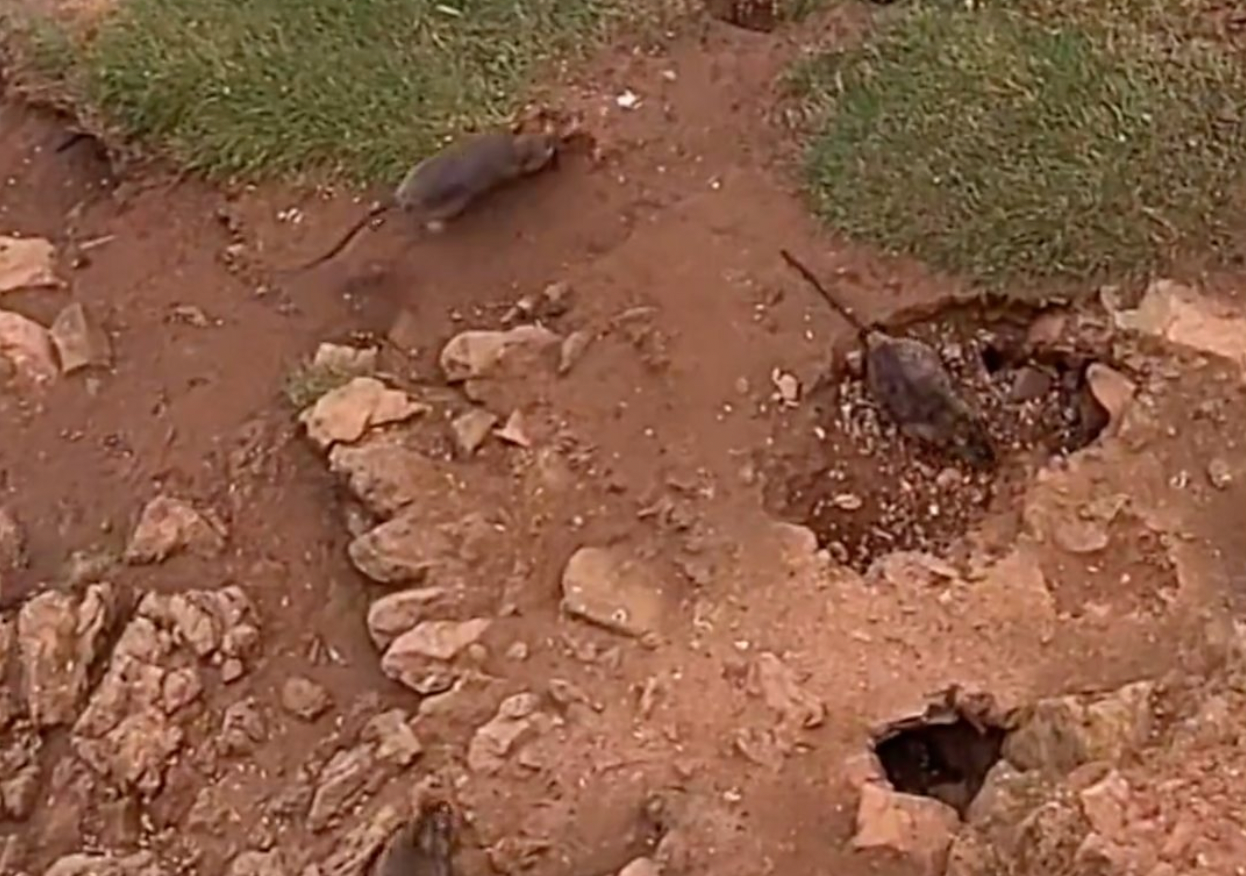Residents fear giant Tenby rats ‘as big as cats’ can make the Wales tourist cliff unstable
Structural repairs have begun and ‘temporary barriers’ are being placed in tourist destination’s affected areas

Your support helps us to tell the story
From reproductive rights to climate change to Big Tech, The Independent is on the ground when the story is developing. Whether it's investigating the financials of Elon Musk's pro-Trump PAC or producing our latest documentary, 'The A Word', which shines a light on the American women fighting for reproductive rights, we know how important it is to parse out the facts from the messaging.
At such a critical moment in US history, we need reporters on the ground. Your donation allows us to keep sending journalists to speak to both sides of the story.
The Independent is trusted by Americans across the entire political spectrum. And unlike many other quality news outlets, we choose not to lock Americans out of our reporting and analysis with paywalls. We believe quality journalism should be available to everyone, paid for by those who can afford it.
Your support makes all the difference.The presence of a large number of rats on the seaside town of Tenby has sparked fears of ground erosion and infestation of a cliff overlooking one of the most popular tourist destinations in Wales.
Rats described as “giant” and “as big as cats” have been seen burrowing and tunnelling into the rocks of Tenby’s Castle Hill area.
Videos posted on social media showed rodents burrowing in the ground and coming in and out of big holes.
The rodents’ unusual presence over the cliff overlooking the Pembrokeshire seaside town’s Castle Beach and South Beach has caused concerns among the residents and council members who were forced to take urgent measures.
The area sees tens of thousands of tourists flocking to the town each year to enjoy its picturesque beaches and coastline.
Pembrokeshire Council last week said it is aware of the issue and warned the public against feeding birds and dropping food in the area, factors blamed for attracting a large number of rodents in the area.
“We are aware of issues with rodents and the need of additional baiting points, and are working to address this concern,” a spokesperson for the council said.
“We are using specialist staff to address the access to the cliff face: this may also allow us regular access for the future as well.”
Local councillor Michael Williams told Tenby Observer that the “rodent infestation” is so considerable at Castle Hill that a large area of the cliff appears to have extensive tunnelling by rodents, which makes the “cliff appear unstable”.
He said there could be “a major infestation” in the council gardens overlooking North Beach as they have spotted “extensive burrowing into the cliff area”.
Structural repairs have begun and “temporary barriers” are being placed in and around parts of Castle Hill, The Paragon and The Esplanade, he said on Monday, according to the report.
However, Tenby town’s mayor Samantha Skyrme-Blackhall said the issue is being blown out of proportion.
“We are taking action and have people out this week. We did put things in place in December,” she said. “It’s the same in any place like Tenby.”
Boatman Roger Miles told the BBC that he saw “rats as big as cats” and said the big worry is any “structural damage they might be doing to the cliff face”.
The mayor said they are seeing an increased footfall since Covid and feeding the birds has exacerbated the issue.
“We are the jewel in the crown of Pembrokeshire, so we have always had a lot of visitors, but there have been more since then. There are members of the public who feed the birds, which feeds the rats. They think they are being kind but it’s not helping the issue at all,” she said.
“The problem is being eradicated as we speak. Yes there have been issues but nothing on the volume that has been out there and as far as we are aware, the rats have been taking the bait.”
The image accompanying this article was changed the day after publication as the earlier photograph featured the wrong species of rat.
Join our commenting forum
Join thought-provoking conversations, follow other Independent readers and see their replies
Comments